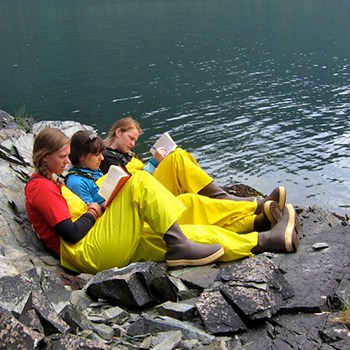About the Consortium
An Introduction to the Consortium
The Keck Geology Consortium is a multi-college collaboration focused on enriching undergraduate education through development of high-quality research experiences. Now in its 20th year, the Consortium has been a fundamental component of the undergraduate-research landscape since its inaugural projects in 1987. In >200 sponsored projects to date, the Consortium has supported 1550 undergraduate students from 140 schools across the nation. Programs have involved over 115 faculty representing 50 different colleges, universities, governmental agencies, and businesses (529 faculty positions overall, with many faculty as repeat participants).
Funding is provided by the Keck Geology Consortium Member schools and a variety of other sources including NSF (NSF-REU 1659322 for 2017-2021)
Analyzing and Presenting Research is a Key Component
In addition to research projects, the Consortium program includes the annual Keck Research Symposium in Geology. For the students, the symposium is a place to present research in an environment that emphasizes the importance of communication and builds self-confidence. For the faculty, the symposium is an opportunity to interact and share information with each other, stimulating development of new collaborations and innovative programs. Over the years, “Keck” has acquired a tangible meaning in the Geoscience community – that of talented students gaining valuable field-based research experience supported by dedicated master teachers.
Successful Programs lead to expanded research opportunities
Named one of seven “Programs that Work” by Project Kaleidoscope, the success of the Consortium can be measured on multiple levels:
- the generation of high-quality research projects
- a growing pool of project directors including Consortium veterans and new faculty
- application numbers that far exceed the number of positions available
- students and faculty who have presented over two hundred multi-authored papers at conferences since 1988
Consortium alumni who span the distance along career paths from graduate school to mid-career, work in geoscience-related business and industry, are K-12 and tertiary educators, work for non-profit organizations, and occupy a variety of professions outside the sciences.

